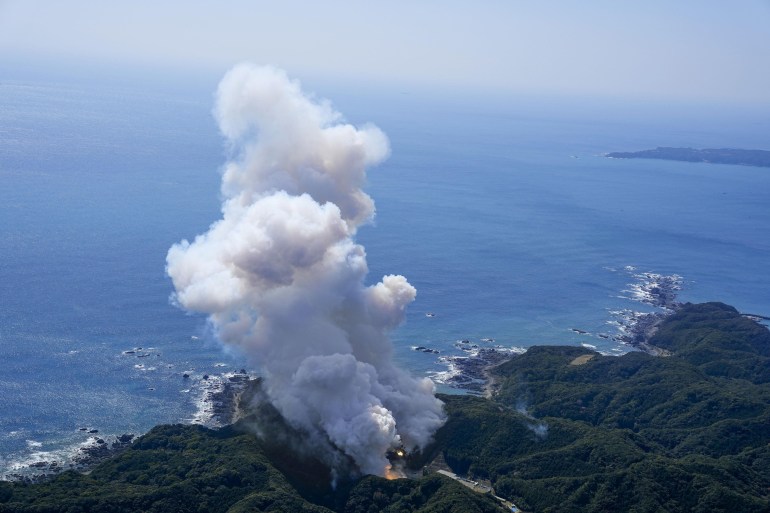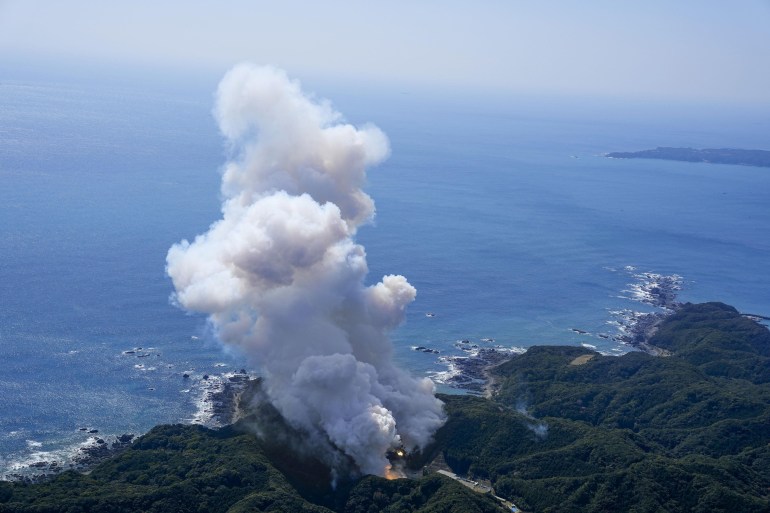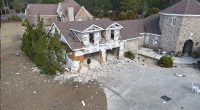Tokyo-based startup Space One was aiming to become the first private Japanese firm to put a satellite into orbit.
A small Japanese rocket exploded shortly after launch in a blow to Tokyo-based startup Space One’s attempt to become the first local company to put a satellite into orbit.
The 18-metre (60 feet), four-stage solid-fuel rocket called Kairos exploded into pieces seconds after liftoff at 11.01am (02:01 GMT) on Tuesday, filling livestream screens with pictures of flames and billowing clouds of smoke. Burning debris could be seen falling onto the surrounding mountain slopes as sprinklers began spraying water.
Space One said the flight was “interrupted” after the launch from the mountainous Kii peninsula in western Japan and was investigating the situation.
There was no immediate indication of what caused the explosion, or whether there were any injuries. Space One has said the launch was highly automated and required only about a dozen staff at the ground control centre.
Kairos carried an experimental government satellite capable of temporarily replacing intelligence satellites if they malfunctioned and was supposed to have put it into orbit about 51 minutes after the launch.

Although Japan is a relatively small player in the space race, the nation’s rocket developers are scrambling to build cheaper vehicles to capture booming demand for satellite launches from its government and global clients.
Space One was established in 2018 by a group of Japanese companies including Canon Electronics, IHI Aerospace, construction firm Shimizu and the government-backed Development Bank of Japan.
Space One wants to offer “space courier services” to domestic and international clients, with plans to launch 20 rockets a year by the late 2020s.
Last July, another Japanese rocket engine exploded during a test about 50 seconds after ignition.
The solid-fuel Epsilon S was an improved version of the Epsilon rocket that had failed to launch the previous October.
Its testing site in the northern prefecture of Akita was engulfed in flames and a huge plume of grey smoke rose into the sky.
Last month, the Japan Aerospace Exploration Agency (JAXA) toasted a successful blast-off for its new flagship rocket, the H3, after years of delays and two previous failed attempts.
The H3 has been mooted as a rival to SpaceX’s Falcon 9, and could one day deliver cargo to bases on the Moon.
JAXA’s successful launch followed Japan’s January landing of an unmanned probe on the Moon, making it just the fifth country to achieve a “soft landing” on the lunar surface.
Read More: World News | Entertainment News | Celeb News
Aljazera







